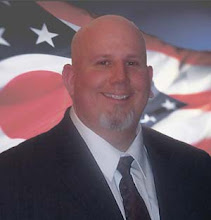
To all the libertarians participating in the Occupy Wall Street movement and the various springboard protests across the country: break free while you can.
Okay, for all my agreement with their unalienable right to protest as protected under the First Amendment and my belief the overall "Occupy" movement is getting a few points right, this item is a bit much to swallow: as reported by the Associated Press, out of the $435,000 raised thus far to financially support the protest efforts on Wall Street itself, approximately $350,000 of it has been donated via online credit-card transactions.
Why does this matter? This movement is founded on the notion that financial sector greed is at the root of almost all of the evils gnawing and rotting away at America. So to combat that evil, OWS protesters are funding their effort via the very financial machinery against which they claim to be locked in righteous struggle.
Next, common sense dictates that for any grassroots movement to successfully win over popular support from the public at large they need to be willing and able to interact with traditional media in addition to the new media of the digital age.
When that same common sense employed in the previous paragraph is applied toward a situation where men donning masks engage in open hostility toward a local television reporter in Oakland because she simply is trying to give them news coverage, that should lead most people who choose to use it to realize the movement's radicalization is careening down an irreversible course.
And that is a shame. Occupy Wall Street began with genuine promise for affecting something positive in America. Instead, it has been so thoroughly overtaken in sheep-like manner by the Left it makes the Right Wing's effort to co-opt the Tea Party pale in comparison.
In my final appeal to common sense, take a moment to read a Bloomberg article explaining how there now is a greater concentration of wealth in Washington, D.C., than in Silicon Valley.
But Wall Street remains the central focus for protesters… The things that make you go, "Hmmmm…"
Or, as Lew Rockwell has pointed-out, the wrong 1% in America is being protested.
So, my fellow libertarians and voluntaryists trying to co-opt this movement, the left's infernal hypocrisy in most corners and radical agenda in others are too much to overcome. Splinter off and form you own movement – "occupy" in front of the Federal Reserve, Securities & Exchange Commission, and other public and quasi-public financial entities – but don't be afraid to piggyback on the left's efforts.
If they believe so much in redistribution, they won't mind sharing some of the media attention a few of them are so eager to spurn...
